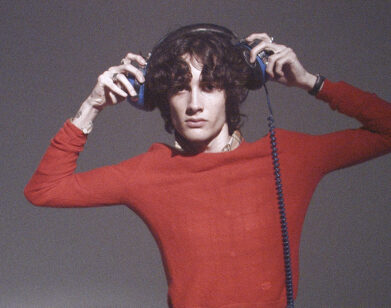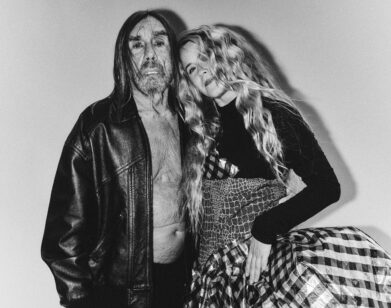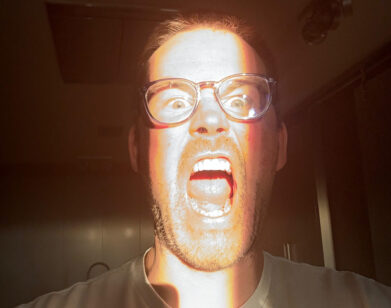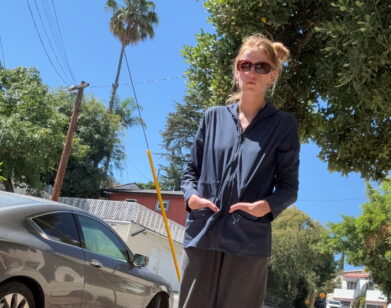Discovery: Nicolas Jaar
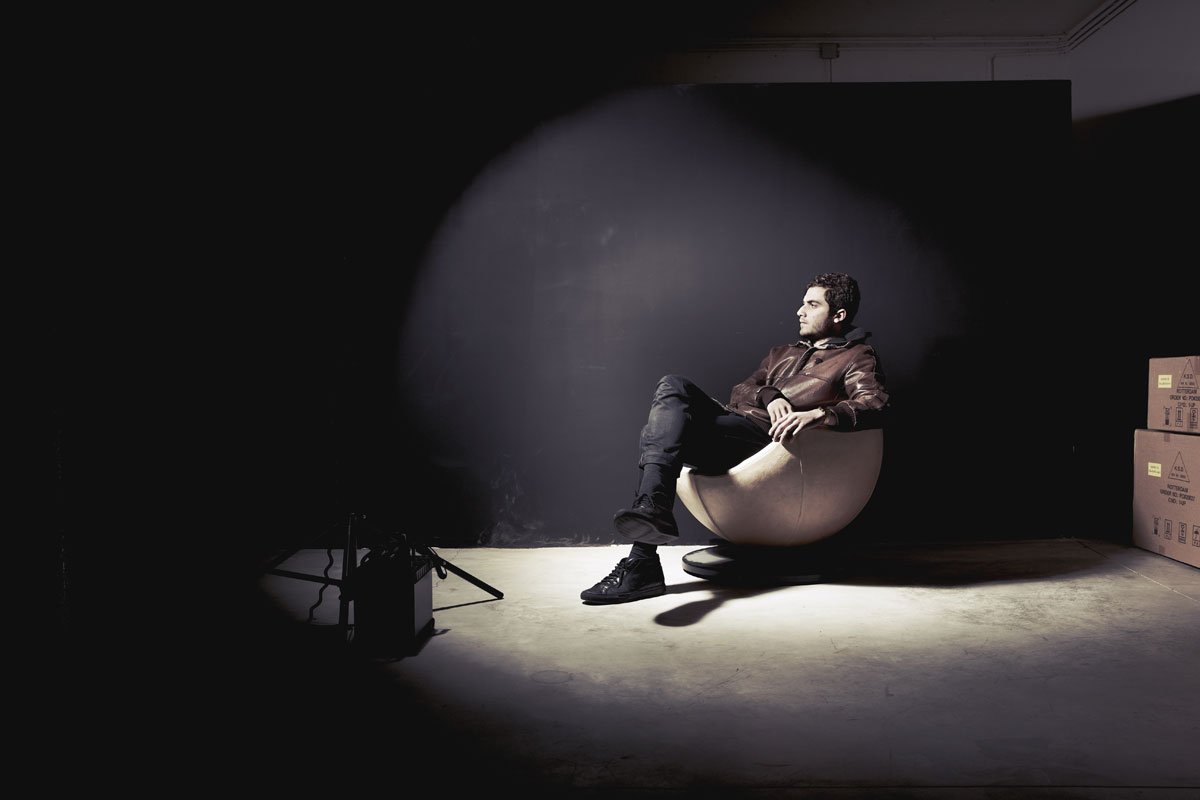
PHOTO COURTESY OF MYQUA.COM
An electronic musician finding inspiration in comparative literature courses might sound a little far-fetched, but the concept of text as muse speaks well to the type of music that artist and current Brown University student Nicolas Jaar seeks to create. School and work “kind of go hand-in-hand,” he says. “I’ll read a text that’s a pain to get through, but in the end it’ll give me ideas for music. It’s more of a challenge, it’s more difficult, of course, but it’s really worth it.” The sultry electronic beats on Jaar’s forthcoming album Space is Only Noise represent a step away from the heavy techno commonly associated with the genre; what comes across instead is a trippy, dreamlike exploration into themes of melancholy and separation interspersed with the occasional hip-stirring bassline. We spoke with the New York-born, Chilean-bred Jaar while he was on vacation from school and a break from touring.
AGE: 20
HOMETOWN: I was born in New York, and then my parents got separated and I moved to Chile with my mother. They got back together when I was 9, so I’ve lived in New York for the past 11 years.
STARTING OUT: I started making music when I was 14. I had heard some electronic music and was very taken by it and just decided to try my hand at it. I heard this album by Ricardo Villalobos, Thé Au Harem D’Archimède. It was really interesting, it had a really bizarre sense of timing and space, just a very loose, impatient, sad texture that I thought you couldn’t do with rock, couldn’t do with hip-hop. In the US, electronic music is not anything compared to what it is in Europe. I’ve never really liked clubs and all that—I kind of hate techno—so it’s really bizarre for me to be in this electronic music world. At first, I got into the artists who were really at the edges of all that.
IF NOT CLUBS, WHERE? I don’t exactly hate clubs, but in the US most clubs are rave-y and really cheesy. In Europe it’s not always like that; there are some amazing, beautiful places. I was just talking about the stigma that clubs have in the US, and sadly, it’s true.
BEST PLACES TO PLAY: In the US, San Francisco. The now defunct Bar 25 in Berlin was incredible. I also really enjoyed Tel Aviv. They set up a whole night in order for my music to work there there was an art gallery, they had a band start for me that was cool.
THE ANTI-UNTZ: Me and some buddies are talking about a new type of space in the US where it’s not about the social scene, like most places here where it’s only these “really cool” people, and they play boring music that their parents like. This is not pushing culture forward; it’s like golfing for businessmen, just a place for people to make connections and close deals. That’s the problem. We’re really trying to see how we can invent this new space that plays forward-thinking electronic music and attracts a crowd that is creative and interesting, but that doesn’t feel rave-y and lame or too cool and businesslike.
WHO DO YOU HAVE IN MIND WHILE MAKING MUSIC? People I like. It’s a personal thing.
YOUR SOUND: It’s going against the really fast, harsh techno sound, against the whole clubby aspect of it. It’s kind of also going against the drug aspect of it and the wasted aspect of it. It appeals more to emotions, it’s much slower.
ALBUM THEMES: The main idea is separation. The record cover is a picture of me taken by my father when I was about 6 months old, in the no-man’s-land between East and West Berlin. I like it that there was this moment when there was a no-man’s-land between these two ideologies, and it’s interesting how music can sort of be that space sometimes, how important the idea of separation is to the creation of music. The ideas of leaving, coming back, forgetting and memory, those are things that are intrinsically linked to me and what I try to do with music.
INFLUENCES: I’ve been very much into instrumental hip-hop, like The Alchemist, DJ Babu, Madlib, J Dilla, in the past year. I’ve always been into Ethiopian jazz, Keith Jarrett. I don’t have any real electronic music influences apart from early Villalobos.
IS SCHOOL A LETDOWN AFTER MAKING MUSIC AND TOURING? Letdown? [laughs] No, it’s not a letdown, it’s pretty amazing. I really love studying and reading, it’s the complete opposite of touring. It’s completely devoting yourself to other people’s thoughts and touring is really about developing your own ideas. I like that balance, it really works for me.
ON TAP FOR 2011: I’m preparing to go on tour with a real band to play the songs from the album. We’re rehearsing a lot and it’s coming along really nicely. I’m also going to have a couple of 12-inches and mix CD’s this year.
FOR MORE ON NICOLAS JAAR, VISIT HIS WEBSITE.

